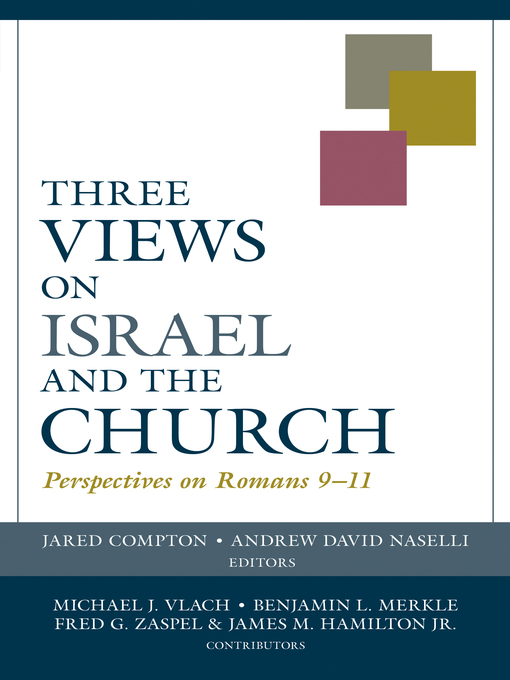- Educational Dissertations
- New American Commentary
- Holman New Testament Commentary
- Paideia: Commentaries on the New Testament
- Baker Exegetical Commentary on the New Testament
- New Testament
- Old Testament
- Encountering Series
- Columbia Bible Seminary Dissertations
- Fiction
- See all
-
Description
-
Creators
-
Details
The relationship between Israel and the church is a long-standing debate in Christian theology, and Romans 9–11 are the most important chapters for understanding it. How one interprets these chapters determines how one understands biblical theology, how the New Testament uses the Old Testament, and how the old and new covenants are related.
To help readers draw their own conclusion, four leading scholars on this issue present a case for their viewpoint, followed by a response and critique from the others. Michael Vlach argues for a future mass conversion and a role for ethnic Israel in the church. Fred Zaspel and Jim Hamilton present a case for a future mass conversion that does not include a role for ethnic Israel. And Benjamin Merkle contends that Romans 9-11 promises neither a future mass conversion nor a role for ethnic Israel.
General editor Andrew David Naselli helpfully sets the debate in its larger biblical-theological context in the introduction, while Jared Compton provides a useful summary of the views and interactions at the end of the volume.

- Jared Compton - Author
- Andrew David Naselli - Author
Kindle Book
- Release date: January 26, 2019
OverDrive Read
- ISBN: 9780825486678
- Release date: January 26, 2019
EPUB ebook
- ISBN: 9780825486678
- File size: 1561 KB
- Release date: January 26, 2019
Formats
Kindle Book
OverDrive Read
EPUB ebook
Languages
English
